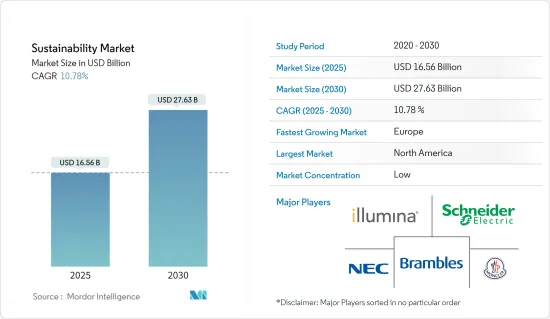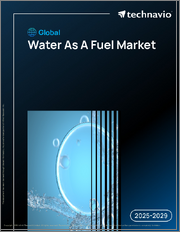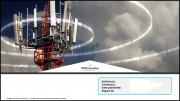
|
시장보고서
상품코드
1651072
지속가능성 : 시장 점유율 분석, 산업 동향 및 통계, 성장 예측(2025-2030년)Sustainability - Market Share Analysis, Industry Trends & Statistics, Growth Forecasts (2025 - 2030) |
||||||
지속가능성 시장 규모는 2025년에 165억 6,000만 달러로 추정되며, 예측 기간(2025-2030년) 동안 CAGR 10.78%로 2030년에는 276억 3,000만 달러에 달할 것으로 예상됩니다.

지속가능성 시장은 환경보전, 사회적 책임, 경제적 생존에 특화된 다양한 분야에 걸쳐 있습니다. 주요 분야로는 재생에너지, 지속가능한 농업, 폐기물 관리, 친환경 건물, 친환경 제품 등이 있습니다. 법적 요구 사항뿐만 아니라 광범위한 환경 목표에 대한 헌신에 힘입어 전 세계 기업들은 지속가능성과 친환경 기술에 많은 투자를 하고 있습니다. 이러한 투자는 친환경 제품 및 에너지 효율이 높은 기술 개발, 지속가능한 공급망 실천, 재생에너지 도입 등 다양한 분야에 걸쳐 이루어지고 있습니다.
또한, 기업들은 연구 개발에 자금을 투자하고, 탄소 배출을 최소화하고, 지속가능한 솔루션을 구축하기 위해 노력하고 있습니다. 또한, 자원과 전문 지식을 모으기 위해 전략적 제휴와 파트너십이 증가하고 있습니다. 또한, 환경-사회-지배구조(ESG) 요인이 투자 분야에서 주목받으면서 사회적으로 의식이 높은 투자자들로부터 자금을 모으기 위해 노력하고 있습니다.
지속가능성 시장 동향
그린 빌딩에 대한 노력의 급증으로 시장 성장 촉진
에너지 효율을 중시하는 그린 빌딩은 에너지 소비를 크게 줄이고 있습니다. 이는 소유주의 운영 비용을 절감할 뿐만 아니라 에너지 효율이 높은 기술 및 솔루션 시장을 촉진하고 있습니다. 많은 기업들이 지속가능성을 위해 노력하고 있으며, 그들의 시설은 종종 그린 빌딩 기준에 부합하는 경우가 많습니다. 기업의 수요가 지속가능성 시장 확대에 박차를 가하고 있으며, 더 많은 기업들이 친환경 솔루션을 추구하고 있습니다. 그린 빌딩의 설계는 실내 공기의 질 향상과 거주자의 복지를 우선시하는 경우가 많습니다. 이러한 인식의 증가는 건강에 초점을 맞춘 건축 제품 및 기술에 대한 시장의 관심을 높이고 있습니다. 지속가능한 생활에 대한 소비자의 관심은 점점 더 높아지고 있습니다. 기후변화와 환경 문제에 대한 인식이 높아지면서 소비자들은 자신의 가치관에 부합하는 제품과 건물을 선호하고 있으며, 이는 그린 빌딩 분야의 성장을 촉진하고 있습니다.
유럽 내 지속가능성 시장 수요 증가
유럽에서는 지속가능성에 대한 소비자의 인식이 높아지고 있습니다. 유럽 소비자들이 환경 문제에 대한 관심이 높아짐에 따라 지속가능한 제품과 서비스를 선호하는 경향이 강해지고 있습니다. EU는 '삼림 파괴 방지 제품 규제'와 '포장 및 포장 폐기물 규제'와 같은 이니셔티브를 통해 친환경 경제를 촉진하고 있으며, 이는 기업 경영에 큰 영향을 미치고 있습니다. 에너지 효율이 높은 솔루션과 지속가능한 소재와 같은 기술 발전으로 인해 기업들은 지속가능한 관행을 채택하는 경향이 강화되고 있습니다. 이러한 기술 혁신은 기업이 지속가능성 목표를 달성하는 데 있어 매우 중요합니다. 한편, EU는 2050년까지 기후변화 중립을 달성하는 것을 목표로 하고 있습니다. 이 목표는 기후변화 리스크에 대응하고, EU의 전략적 자율성, 경쟁력, 사회경제적 모델, 넷제로 경제에서 EU의 세계 리더십을 강화하기 위한 것입니다.
지속가능성 산업 개요
지속가능성 시장은 세분화되어 있습니다. 예측 기간 동안 시장은 성장하고 경쟁이 심화될 것입니다. 경쟁 환경에는 인수 및 합병을 포함하여 세계 시장 점유율을 유지하기 위해 플레이어가 사용하는 모든 전략이 포함됩니다. 시장의 주요 기업으로는 슈나이더 일렉트릭, NEC, 몽클레르, 브람블스, 일루미나 등이 있습니다.
기타 특전:
- 엑셀 형식의 시장 예측(ME) 시트
- 3개월간 애널리스트 지원
목차
제1장 소개
- 조사 가정과 시장 정의
- 조사 범위
제2장 조사 방법
제3장 주요 요약
제4장 시장 역학
- 시장 개요
- 시장 성장 촉진요인
- CSR 전략의 채택 증가로 기업들은 지속가능성을 비즈니스의 핵심으로 삼고 있다.
- 환경 인식 확산이 시장 성장을 지지
- 시장 성장 억제요인
- 높은 초기 비용이 시장을 억제
- 지속가능한 관행에 대한 인식 부족이 시장 성장 저해요인
- 시장 기회
- 기업, 정부, NGO 협력에 의한 혁신 추진과 시장 범위 확대
- 밸류체인/공급망 분석
- Porter's 5 Force 분석
- 신규 참여업체의 위협
- 구매자/소비자의 협상력
- 공급 기업의 교섭력
- 대체품의 위협
- 경쟁 기업 간의 경쟁 관계
- 시장의 기술 혁신에 관한 인사이트
- 시장 규제 프레임워크에 관한 인사이트
- COVID-19의 시장에 대한 영향
제5장 시장 세분화
- 구성요소별
- 솔루션
- 서비스별
- 기술별
- 사물인터넷(IoT)
- AI와 애널리틱스
- 디지털 트윈
- 기타(클라우드·컴퓨팅, 블록체인)
- 용도별
- 그린 빌딩
- 탄소발자국 관리
- 대기·수질오염 모니터링
- 기상 모니터링과 예측
- 화재 감지
- 작물 모니터링
- 기타(토양 상태/수분 모니터링, 삼림 모니터링)
- 지역별
- 북미
- 미국
- 캐나다
- 멕시코
- 기타 북미
- 유럽
- 독일
- 영국
- 프랑스
- 러시아
- 스페인
- 기타 유럽
- 아시아태평양
- 인도
- 중국
- 일본
- 기타 아시아태평양
- 남미
- 브라질
- 아르헨티나
- 기타 남미
- 중동
- UAE
- 사우디아라비아
- 기타 중동
- 북미
제6장 경쟁 구도
- 시장 집중
- 기업 개요
- Schneider Electric
- NEC Corporation
- Moncler
- Brambles
- Illumina
- SGS
- Sanofi
- NRI
- Telefonica
- Cigna*
제7장 시장 동향
제8장 면책사항과 출판사 소개
ksm 25.02.27The Sustainability Market size is estimated at USD 16.56 billion in 2025, and is expected to reach USD 27.63 billion by 2030, at a CAGR of 10.78% during the forecast period (2025-2030).

The sustainability market spans diverse sectors dedicated to environmental preservation, social responsibility, and economic viability. Key areas include renewable energy, sustainable agriculture, waste management, green building, and eco-friendly products. Across the globe, companies are heavily investing in sustainability and green technology, driven not only by legal requirements but also by a commitment to broader environmental objectives. These investments encompass a range of areas, from creating eco-friendly products and energy-efficient technologies to implementing sustainable supply chain practices and embracing renewable energy sources.
Furthermore, businesses are dedicating funds to research and development, aiming to minimize their carbon footprint and craft sustainable solutions. Furthermore, to leverage combined resources and expertise, strategic alliances and partnerships are on the rise. Additionally, environmental, social, and governance (ESG) factors are gaining prominence in the investment landscape, attracting funds from socially conscious investors.
Sustainability Market Trends
Surge in Green Building Initiatives is Boosting Market Growth
Prioritizing energy efficiency, green buildings are significantly cutting down on energy consumption. This is not only reducing operational costs for owners but also boosting the market for energy-efficient technologies and solutions. Numerous companies are committing to sustainability, often aligning their facilities with green building standards. Corporate demand is fueling the expansion of the sustainability market, with businesses increasingly pursuing eco-friendly solutions. Designs of green buildings often prioritize improved indoor air quality and occupant well-being. This growing awareness is amplifying market interest in health-focused building products and technologies. Consumers are increasingly gravitating towards sustainable living. With a rising consciousness about climate change and environmental challenges, consumers are favoring products and buildings that resonate with their values, thereby propelling the growth of the green building sector.
Increasing Demand for Sustainability Market in Europe
In Europe, consumer awareness of sustainability is on the rise. As European consumers grow more concerned about environmental issues, their preference for sustainable products and services intensifies. This shift is shaping market trends and prompting companies to embrace greener practices. The EU is driving a greener economy through initiatives like the Deforestation-Free Products Regulation and the Packaging and Packaging Waste Regulation, which are significantly impacting business operations. Companies are increasingly adopting sustainable practices, thanks in part to technological advancements like energy-efficient solutions and sustainable materials. These innovations are pivotal in helping firms meet their sustainability objectives. Meanwhile, the EU has set its sights on achieving climate neutrality by 2050. This goal addresses climate change risks and bolsters the EU's strategic autonomy, competitiveness, social economy model, and global leadership in the net-zero economy.
Sustainability Industry Overview
The sustainability market is fragmented. During the forecast period, it is poised for growth, intensifying competition. The competitive landscape includes all the strategies players use to maintain their market share globally, such as acquisitions and mergers. The major players in the market include Schneider Electric, NEC Corporation, Moncler, Brambles, and Illumina.
Additional Benefits:
- The market estimate (ME) sheet in Excel format
- 3 months of analyst support
TABLE OF CONTENTS
1 INTRODUCTION
- 1.1 Study Assumptions and Market Definition
- 1.2 Scope of the Study
2 RESEARCH METHODOLOGY
3 EXECUTIVE SUMMARY
4 MARKET DYNAMICS
- 4.1 Market Overview
- 4.2 Market Drivers
- 4.2.1 Companies are Making Sustainability a Core Aspect of their Operations through Increased Adoption of CSR Strategies
- 4.2.2 Rising Environmental Awareness Fuels Market Growth
- 4.3 Market Restraints
- 4.3.1 High Initial Costs is Restraining the Market
- 4.3.2 Market Growth Hindered by Lack of Awareness on Sustainable Practices
- 4.4 Market Opportunities
- 4.4.1 Companies, Governments, and NGOs Collaborate to Drive Innovation and Expand Market Reach
- 4.5 Value Chain / Supply Chain Analysis
- 4.6 Porters 5 Force Analysis
- 4.6.1 Threat of New Entrants
- 4.6.2 Bargaining Power of Buyers/Consumers
- 4.6.3 Bargaining Power of Suppliers
- 4.6.4 Threat of Substitute Products
- 4.6.5 Intensity of Competitive Rivalry
- 4.7 Insights on Technological Innovations in the Market
- 4.8 Insights on Regulatory Framework in the Market
- 4.9 Impact of COVID-19 on the Market
5 MARKET SEGMENTATION
- 5.1 By Component
- 5.1.1 Solutions
- 5.1.2 Services
- 5.2 By Technology
- 5.2.1 Internet of Things (IoT)
- 5.2.2 AI and Analytics
- 5.2.3 Digital Twin
- 5.2.4 Others (Cloud Computing, Blockchain)
- 5.3 By Application
- 5.3.1 Green Building
- 5.3.2 Carbon Footprint Management
- 5.3.3 Air and Water Pollution Monitoring
- 5.3.4 Weather Monitoring and Forecasting
- 5.3.5 Fire Detection
- 5.3.6 Crop Monitoring
- 5.3.7 Others (Soil Condition/Moisture Monitoring and Forest Monitoring)
- 5.4 Geography
- 5.4.1 North America
- 5.4.1.1 US
- 5.4.1.2 Canada
- 5.4.1.3 Mexico
- 5.4.1.4 Rest of North America
- 5.4.2 Europe
- 5.4.2.1 Germany
- 5.4.2.2 UK
- 5.4.2.3 France
- 5.4.2.4 Russia
- 5.4.2.5 Spain
- 5.4.2.6 Rest of Europe
- 5.4.3 Asia Pacific
- 5.4.3.1 India
- 5.4.3.2 China
- 5.4.3.3 Japan
- 5.4.3.4 Rest of Asia Pacific
- 5.4.4 South America
- 5.4.4.1 Brazil
- 5.4.4.2 Argentina
- 5.4.4.3 Rest of South America
- 5.4.5 Middle East
- 5.4.5.1 UAE
- 5.4.5.2 Saudi Arabia
- 5.4.5.3 Rest of Middle East
- 5.4.1 North America
6 COMPETITIVE LANDSCAPE
- 6.1 Market Concentration
- 6.2 Company Profiles
- 6.2.1 Schneider Electric
- 6.2.2 NEC Corporation
- 6.2.3 Moncler
- 6.2.4 Brambles
- 6.2.5 Illumina
- 6.2.6 SGS
- 6.2.7 Sanofi
- 6.2.8 NRI
- 6.2.9 Telefonica
- 6.2.10 Cigna*



















